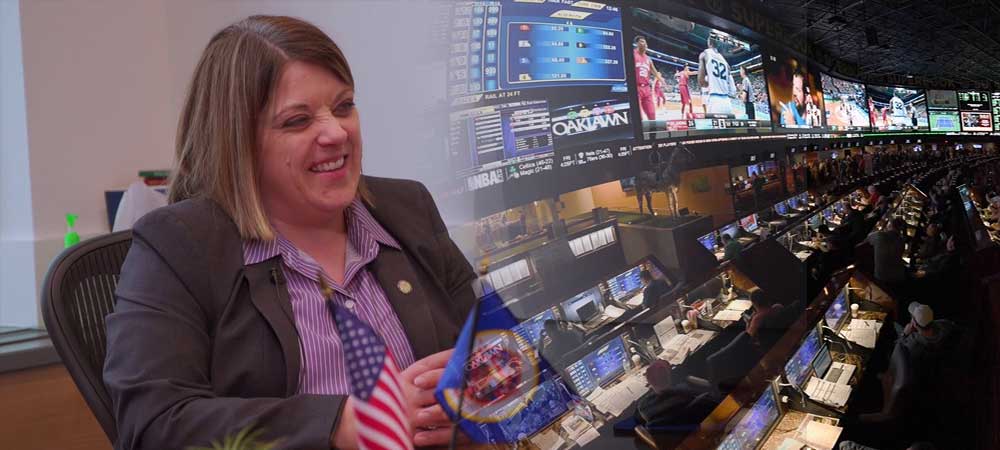- Minnesota will see a new bill in 2021 that would make sports betting legal in the state at Tribal locations, followed by mobile platforms a year after the launch of the market.
- Legal sports betting in Minnesota has the potential to bring in $30-$40 million annually on revenue for the state.
SAINT PAUL, Minn. – The Minnesota Legislature will have the opportunity to legalize sports betting in 2021 but the question remains whether or not lawmakers are in favor of such an industry for the state.
The legislation will be introduced this week to make sports betting in Minnesota legal, allowing residents to wager on the outcome of games within a state-sanctioned industry.
However, before the bill has even been given a name, those within the Legislature are saying it won’t pass.
Bringing Legalized Sportsbooks To Minnesota
Senator Karla Bigham is the sponsor who will be backing the sports betting bill set to come out. According to Bigham, sports wagering is already happening in Minnesota so there should be no problem in making the market a legal one if it’s an activity that residents willingly engage in without fear of punishment.
This would allow for a safer outlet for sports bettors and maybe a few extra dollars for the economy of Minnesota.
“Sports wagering is flagrantly done publicly by myself and others but it is not legal,” said Bigham. “So why criminalize it. Let’s shine some light on it, let’s put some parameters around it, and if the state makes a buck or two along the way, good for us.”
Prop betting, Daily Fantasy Sports (DFS), and wagers on the over/under are legal for Minnesotans to participate in via platforms like FanDuel and DraftKings. It’s gambling on the outcome of games, the moneyline bet, that is prohibited in the state.
But it happens anyway with mobile offshore sportsbooks and other third-party sources that give residents the ability to put money on the Minnesota Vikings or the Minnesota Twins among other teams.
In the past, Minnesota has seen opposition from the Minnesota Indian Gaming Association. The Tribes don’t see legal sports wagering as something that will be extremely profitable so legalization is a non-issue. But the second problem would be giving commercial businesses a way into the gambling industry by opening operations in the state when this has been a market that Tribes have held the monopoly on.
Through Bigham’s bill, the Tribal casinos and racetracks in the state would be eligible to open sportsbooks. Gamblers would need to visit these locations to get any action in on the games. After one full year of on-site sports betting, legal online and mobile platforms would be launched, giving Minnesotans the ability to gamble with the use of these applications anywhere statewide and not just on Tribal land.
There would be a 6% tax on the Gross Gaming Revenue (GGR) at sports betting establishments and a rate of 8% for internet and mobile sportsbooks.
The stipulations for the more popular online and mobile platforms are that all registration for accounts must be done at an actual location as well as funding the accounts for wagers. This could deter the amount of engagement via these applications.
Minnesota projects an estimated $30-$40 million in revenue from a legal sports wagering industry.
The Future Of Minnesota’s Legal Sportsbook Industry
Legal sports betting in Minnesota is something that may eventually happen, but the exact timeline is unclear.
The 2021 legislative session already has tons of topics to discuss and sports wagering may not make the docket. But lawmakers in the state know that one day a legalized market will make its way to the state, it will just take some time. Things happen in slow motion in Minnesota when it comes to how the laws are made per those in the field.
“I love Minnesota. I’ve lived here my whole life. I just don’t know why we have to be the 45th or 46th state to do everything,” said Representative Pat Garofalo.
Until the day comes when Minnesotans get their own sports betting industry, sports bettors in the North Star State can still place their wagers on events by traveling to neighboring states with legal sports wagering industries such as Iowa and eventually South Dakota.
Advertising Disclosure
In order to provide you with the best independent sports betting news and content LegalSportsBetting.com may receive a commission from partners when you make a purchase through a link on our site.
News tags: DFS | DraftKings | FanDuel | Karla Bigham | Minnesota | Minnesota Indian Gaming Association | Minnesota Legislature | Minnesota Twins | Minnesota Vikings | MLB | NFL | Pat Garofalo

Christina has been writing for as long as she can remember and does dedicated research on the newly regulated sports betting market. She comes from a family of sports lovers that engage in friendly bets from time to time. During the winter months, you can find Christina baking cookies and beating the entire staff at Mario Kart…the N64 version of course.


 Bitcoin Sports Betting Sites
Bitcoin Sports Betting Sites Best Online Sports Betting
Best Online Sports Betting Famous Sports Bettors
Famous Sports Bettors States With Legal Sports Betting
States With Legal Sports Betting Sports Betting Events
Sports Betting Events




